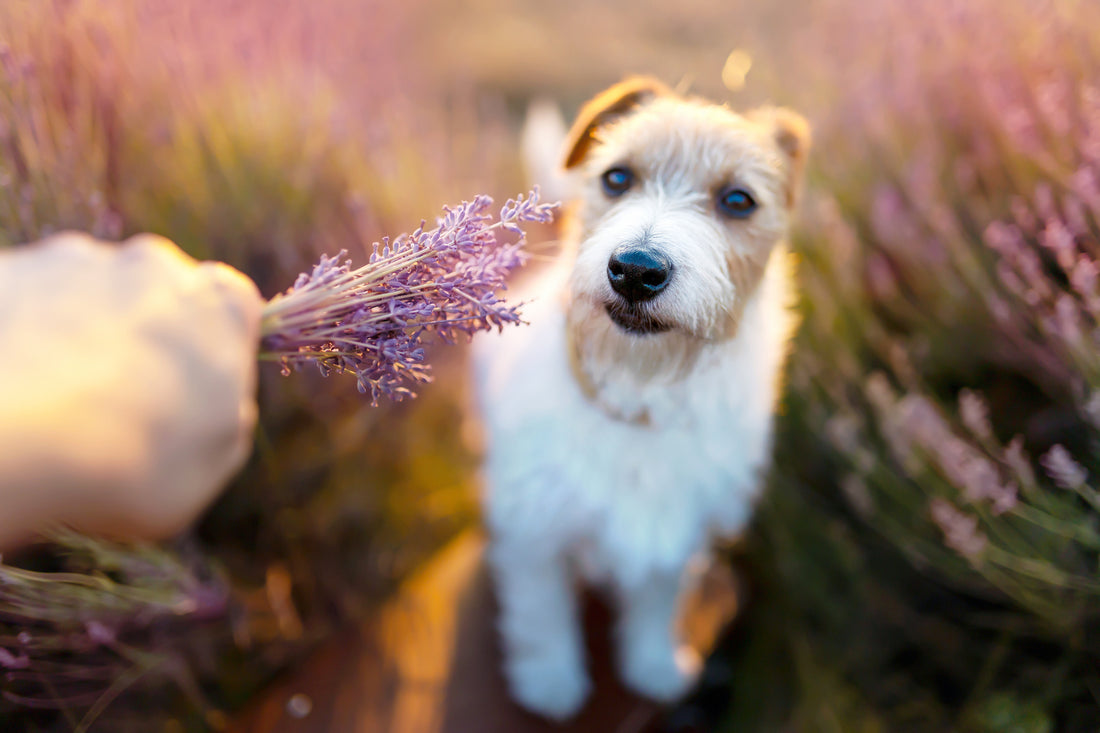Essential oils have become a popular choice for many pet owners as a natural method to improve their pet's health and well-being. While using essential oils appropriately can be helpful, it's vital to keep in mind that doing so can also endanger dogs. Knowing which essential oils are safe for your pets and how to use them safely is crucial for any conscientious pet owner.
Safe Essential Oils for Pets
Many essential oils are suitable for pets, and their use can assist enhance a pet's overall health and well-being. The essential oils lavender, chamomile, and frankincense are a few examples of those that are thought to be safe for animals. Pets who are experiencing worry, stress, or insomnia may benefit from the relaxing effects of lavender essential oil. Chamomile essential oil can help ease a pet's upset stomach, while frankincense essential oil can assist enhance the immune system.
When using essential oils on pets, it is vital to dilute them adequately. Dogs are more sensitive to essential oils than people, and using undiluted essential oils can cause skin irritation, respiratory troubles, and other health problems. One drop of essential oil per one tablespoon of carrier oil, such as coconut oil or sweet almond oil, is the suggested dilution ratio for use on animals. Always start with a tiny amount of diluted essential oil and watch your pet's reaction before using it more frequently.
Unsafe Essential Oils for Pets
Aromatherapy frequently makes use of essential oils, and many pet owners also use them to calm their animals. Nevertheless, not all essential oils are safe for pets. In fact, some can be toxic and cause serious harm to your furry friend.
One of the essential oils that can be particularly dangerous for pets is tea tree oil. This oil when consumed might result in tremors, tiredness, vomiting, and diarrhea. Moreover, it may result in more severe problems like liver damage or even coma. Additional oils that should be avoided are clove oil, cinnamon oil, and wintergreen oil, which can all produce various bad effects on pets. It's crucial to speak with a veterinarian before using any essential oils on your dogs and to ensure that any goods containing essential oils are kept safely out of reach.
Safety Precautions When Using Essential Oils on Pets
When using essential oils on pets, it is crucial to follow the required safety steps to prevent any health complications. Before applying essential oils to pets, always dilute them. Second, avoid using essential oils on pets that are pregnant, nursing, or have any underlying health concerns. Finally, keep essential oils away from dogs because they might eat them or spill them on their skin by accident.
It's crucial to monitor your pet's response to essential oils and stop using them if you see any negative effects. Vomiting, diarrhea, excessive drooling, drowsiness, and breathing difficulties are symptoms of an unpleasant reaction. If you believe that your pet has consumed an essential oil or is experiencing an adverse response, contact your veterinarian immediately.
Potential Risks of Essential Oils on Pets
While some essential oils might be useful for pets, utilizing them improperly or using essential oils that are hazardous for pets can lead to possible dangers. Some of the potential concerns of utilizing essential oils on pets include skin irritation, respiratory troubles, digestive problems, liver damage, and even death in severe situations.
Skin irritation is a common danger linked with using essential oils on pets. Dogs have more sensitive skin than humans, and essential oils that are safe for humans may cause skin irritation or even chemical burns on pets. Redness, itching, and inflammation are indications of skin irritation. If you experience any symptoms of skin sensitivity, stop using the essential oil right once and seek advice from a veterinarian.
Another potential concern about using essential oils on pets is respiratory problems. Pets may breathe in essential oils when they are diffused, and some oils may cause respiratory issues. Respiratory difficulties can range from moderate symptoms, such as coughing and sneezing, to severe symptoms, such as trouble breathing and respiratory failure.
Digestive disorders are also a potential concern of utilizing essential oils on pets. Certain essential oils can cause upset stomach, diarrhea, and vomiting in pets. For instance, the common essential oil peppermint oil might upset a pet's stomach. Another possible danger of using essential oils on pets is liver damage. Certain essential oils can be harmful to the liver and cause liver damage in pets, particularly when taken in excessive doses.
In extreme circumstances, inappropriate application of essential oils to pets or application of essential oils that are harmful to animals might result in death. Tea tree oil, for example, is highly toxic for pets and can cause seizures and respiratory failure when taken in significant amounts.
Conclusion
When used properly, essential oils can be a secure and efficient approach to enhancing the health and well-being of your pet. Yet, it is crucial to note that essential oils can be toxic to pets if used inappropriately. Knowing which essential oils are safe for your pets and how to use them safely is crucial for any conscientious pet owner. Always dilute essential oils before using them on pets, avoid using essential oils on pets who are pregnant or have underlying health concerns, and evaluate your pet's reaction to essential oils. You can contribute to ensuring that your pets remain healthy and happy by taking some safety steps.


